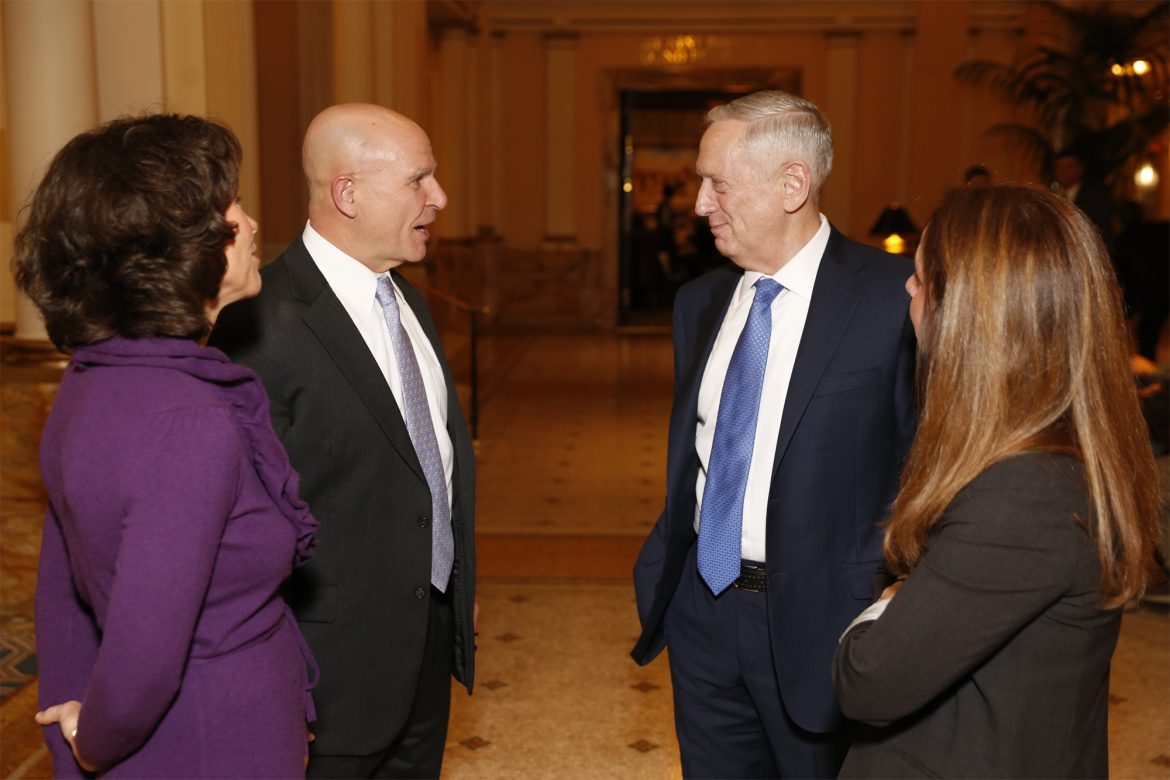Tail attempting to wag the dog…..
Revolt of the generals: ‘The Narrative’ driving the train
While preparing to write this post, I debated a bit about the right way to organize it. The post is about some troubling developments over the last week or so, suggesting that two of the top general officers in the Trump administration are letting an attitude of institutional resistance against the president be visible to the public.
I don’t doubt that professional life is very hard right now for these gentlemen. I do doubt that seeming to buck the president – or in fact bucking the president – is the right thing to do.
But I don’t want to make this “about” calling them out as individuals. For one thing, we have a tough time knowing how much of what we hear about the doings inside the Beltway is true. I’m restricting myself here to commenting on events there is verifiable evidence for.
For another thing, the pressure-cooker of a Washington in which every local institution is trying to bring down the elected president is enough to put cracks in most people. The problem is much bigger than personalities.
The focus on national security
After thinking it through, I realized that the organizing point is this. The structural stress these men (and others) are functioning under is the result of the “deep state’s” first big win against Trump, back in February. It’s not a surprise that foreign and security policy is the realm in which this is manifesting itself most sharply. When Michael Flynn was railroaded out of his position as national security adviser, Trump lost the senior policy coordinator whom he – Trump – could trust to coordinate policy on his terms, and in the service of his agenda.
The people who cycle through positions inside the Beltway are accustomed to particular conventions of White House business. And one that expanded and entrenched itself considerably during the Obama years was the policy centrality of the national security adviser and the NSC. Obama significantly increased both the manning and the power portfolio of the NSC.
This wasn’t necessarily a problem; there are pros and cons to how he operated. Bush 43 also had an especially high-profile adviser in Condoleezza Rice. The foreign policy horsepower of Henry Kissinger when he was national security adviser in the Nixon administration was legendary. Presidents have differed somewhat in how they have used these relationships.
But there are two important points about the situation Trump inherited from Obama. One is that the NSC staff was so expanded, and the national security establishment became accustomed to the way Obama used it – in part as a place to bring in people like Ben Rhodes and Robert Malley, to name just two, who wouldn’t have survived the vetting process to get jobs of comparable responsibility in the cabinet departments.
The other point is that the functioning of the national security apparatus, under these conditions, depended heavily on the national security adviser and the NSC having the trust of the president, and supporting and executing his policies loyally.
The Obama NSC staff was closely involved – very hands-on – in issues ranging from air strike targeting in Syria and Iraq to negotiating the JCPOA with Iran. The NSC enjoyed this level of involvement in the business of the Defense and State Department because it had the trust of the president and his most senior aides, like Valerie Jarrett.
The structural stress now is precisely the disconnect between a president, elected by the people, who wants to implement his policies, and senior national security officials who accepted their jobs and remain in them even though, on key issues, they apparently disagree with the president’s policies.
The “generals”
The two men I referred to at the outset are H.R. McMaster, the national security adviser, and (to a lesser extent) James Mattis, the secretary of defense.
I don’t perceive Mattis’ policy discord with the president to be as acute as McMaster’s, and that is an important point. But I found it jarring last week when Mattis’ Pentagon responded to Trump’s tweets about the transgender ban with a less-than-compliant (even snippy) sounding memo that said, basically, “We’re not doing anything until the president comes up with a plan.”
It’s not the president’s job to come up with the plan. And with all due respect to Secretary Mattis, that’s not a disciplined military response.
Moreover, I can’t imagine Mattis ever responding that way to any order from Obama, no matter what the issue, no matter how the order was given, and no matter what Mattis’ own feelings about it. The Pentagon’s public response came off as a political smoke signal: a statement of implied dissatisfaction and passive-aggressive resistance to the president. That’s not OK. You pull that one, you better just go ahead and use it. You can’t make a lifestyle of it with rhetorical drive-bys. When you try to, you make yourself the problem. That doesn’t sound Mattis-like to me.

